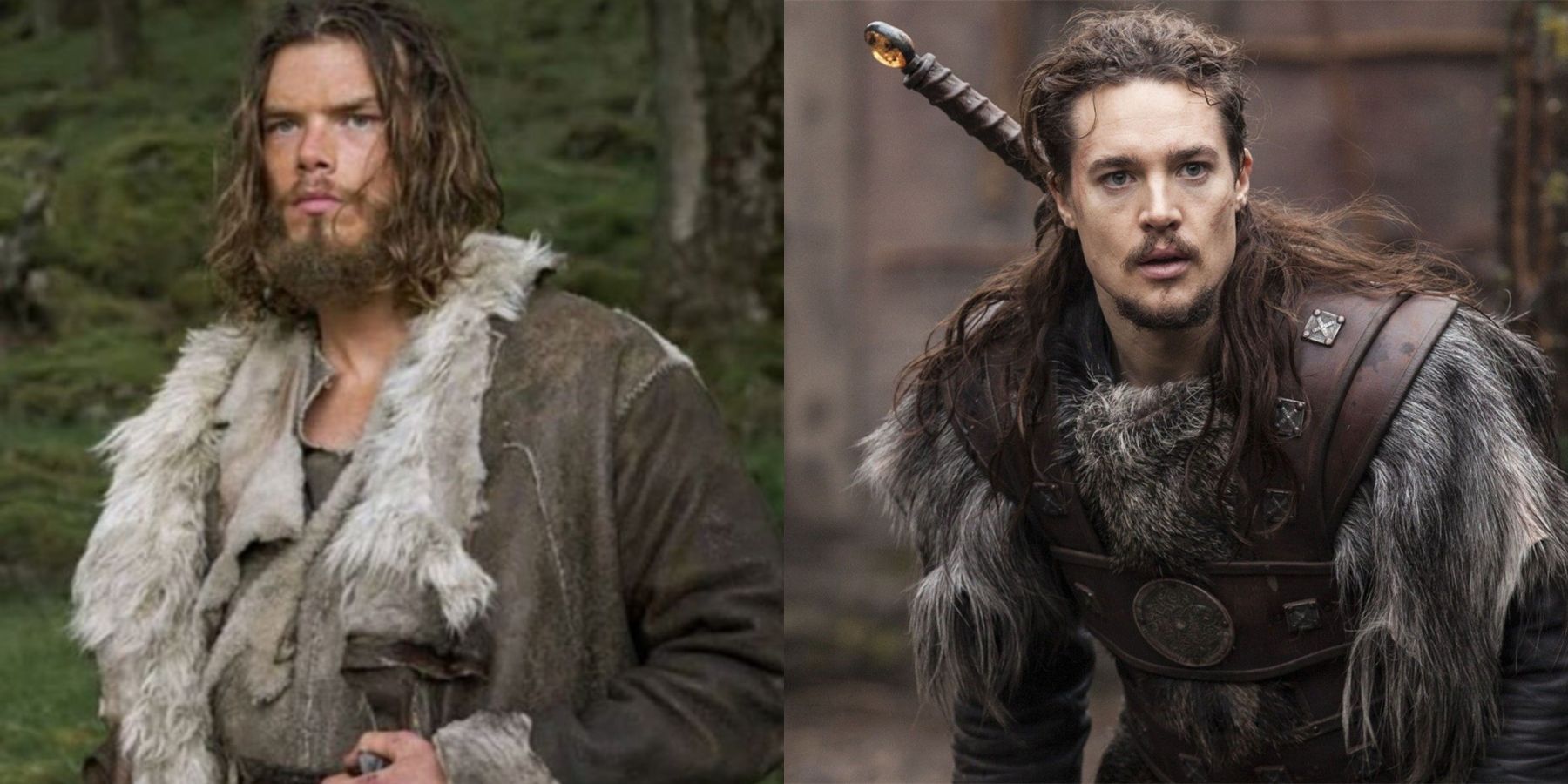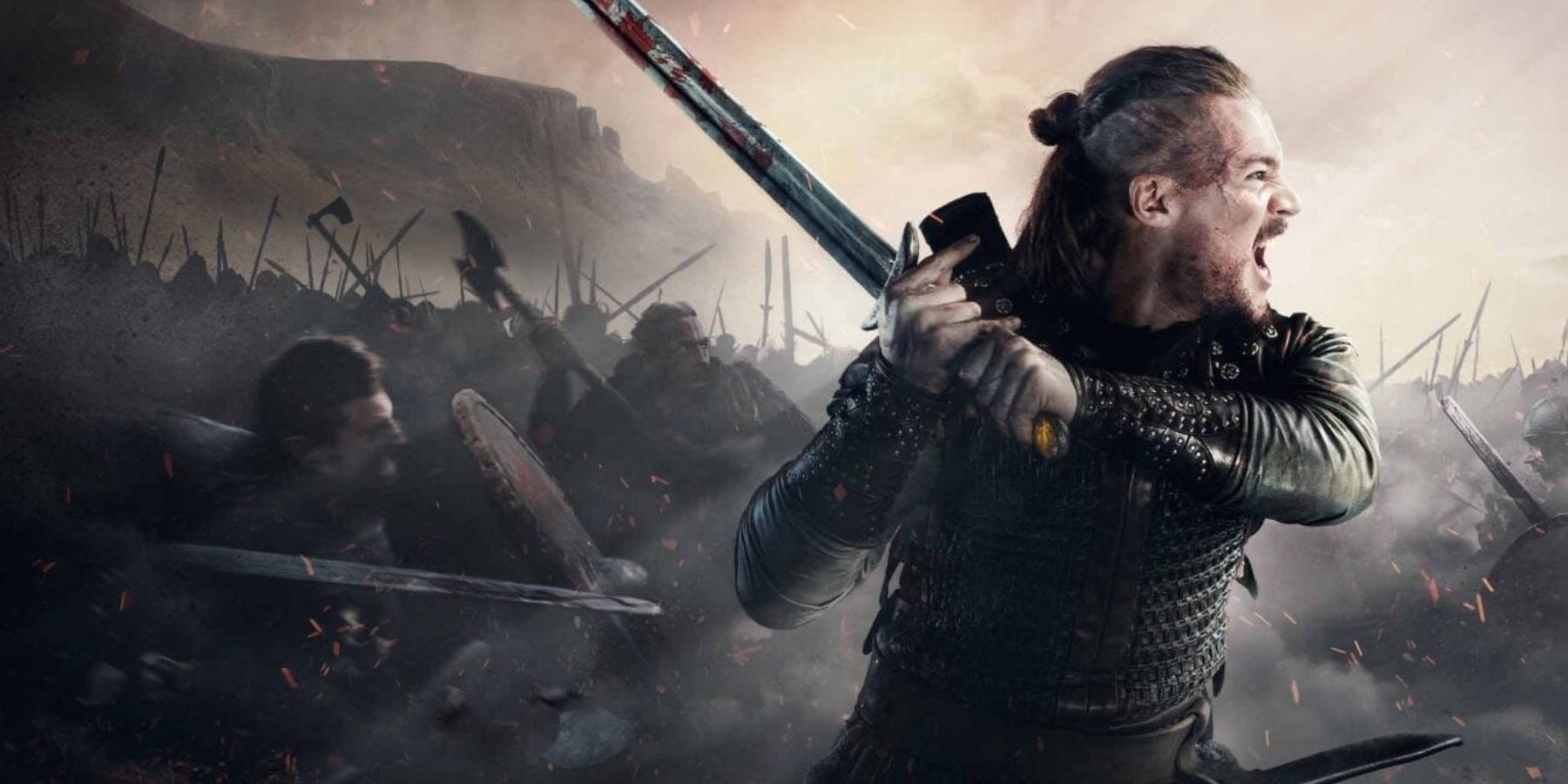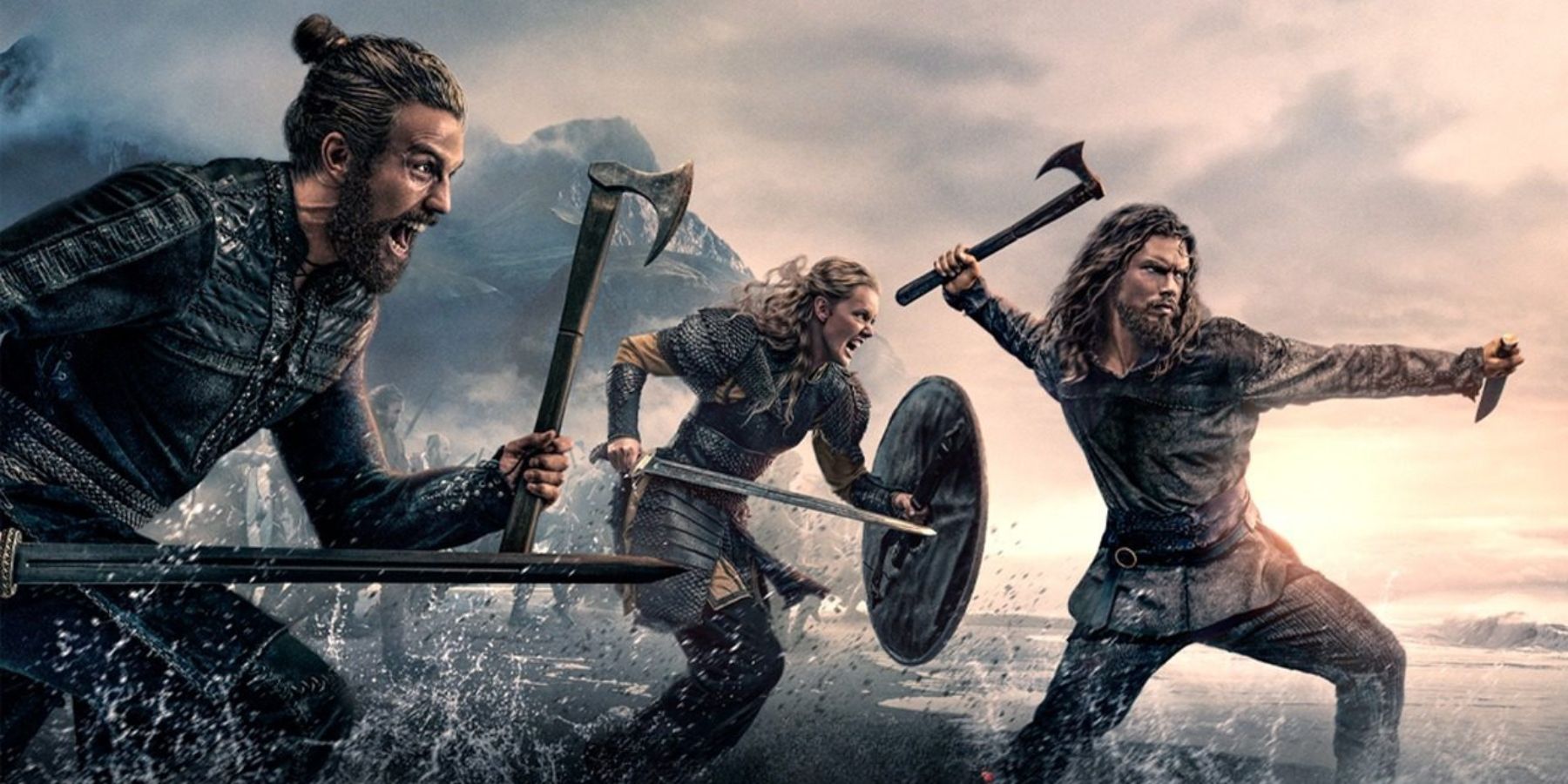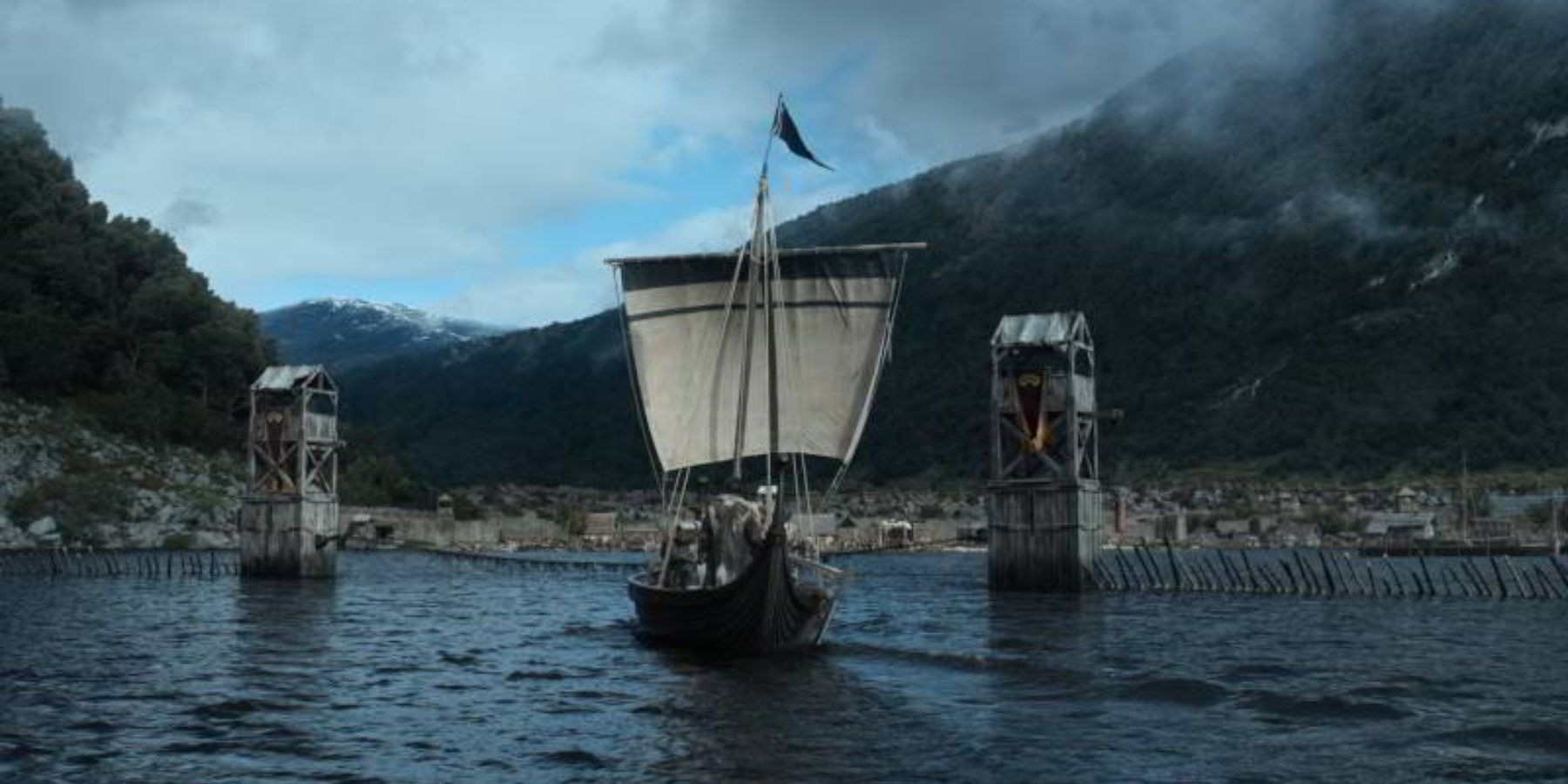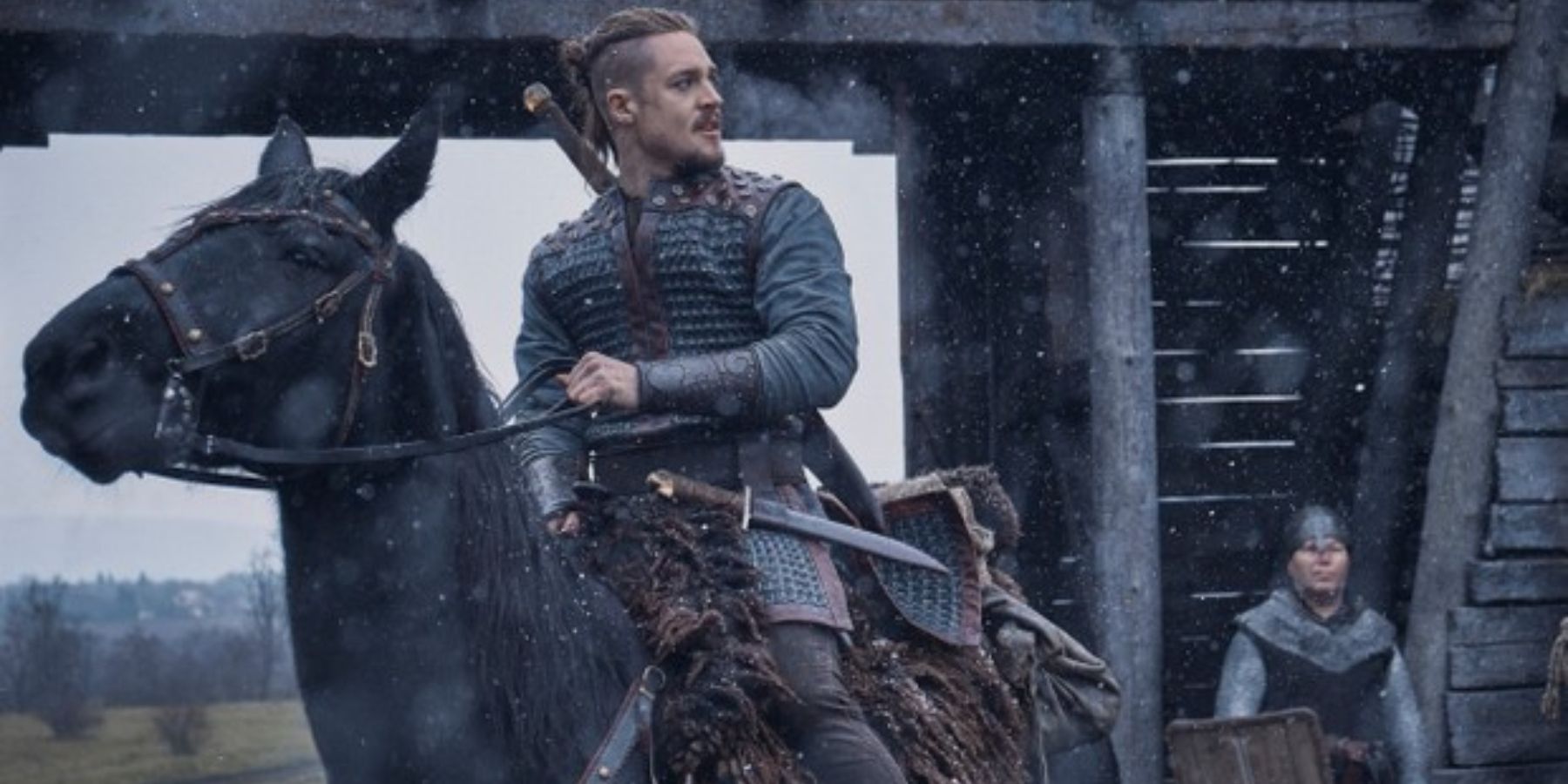Netflix recently released Vikings: Valhalla on Netflix in February and while the show was received well by audiences, many viewers quickly breezed through the single season. While Vikings: Valhalla is a continuation of the world in Vikings it is not the only representation of Viking culture that is available on streaming platforms.
One Viking-focused show that is Netflix made and holds up to the same story quality as Vikings and its spin-off series is The Last Kingdom which is also available to stream on Netflix. While Vikings pre-dated The Last Kingdom, having premiered in 2013 and The Last Kingdom in 2015, the shows share several similarities and differences that make them equally relevant to the attention to Norse culture and history.
Vikings: Valhalla is set 100 years after the storyline in Vikings and is centered around the adventures of Leif Erikson, Freydis, Harald Hardrada and Norman King, William the Conqueror, as they begin the fight that leads to the downfall of the Viking empire. The Last Kingdom explores the adventures of a man named Uhtred that was born a Saxon but was raised by Vikings as he aims to claim his ancestral birthright through a complicated alliance with Alfred the Great. Both stories bring to life the tension between the Pagans and Christians as both sides try to maintain and grow their empires.
The shows were received about the same by audiences and both of them have a very impressive cast. The shows seem to equally inspire excitement and interest in this time period among audiences. The Vikings and Vikings: Valhalla shows follow the events of the Vikings in the 9th century. The Last Kingdom, likewise, is set in the 9th-10th century.
There are some obvious similarities between the content of the two shows, like the regions they’re set in, some shared characters, and a few events that they both explore. Additionally, both shows have a similar tone and display many of the same aesthetics and practices of Viking culture, especially in terms of fighting and religion. That said, each series also shows different perspectives of the culture, resulting in both shows bringing something to the table to represent the way of life for Vikings.
The two shows would even mostly be categorized in the same genres, both being centered around history, and both clearly being period pieces which is evident through their commitments to the costumes and customs of the people the characters represent. Each series does, however, lean into other genres stronger than the other. Vikings: Valhalla tends to lean more into action, using the dramatic dynamics between characters as fuel for the fighting. The Last Kingdom relies more heavily on drama, focusing much more on the relationships and emotions of characters and how the fighting plays a part in those things.
Both series contain all of these genre elements to some degree, but it is the elements that they choose to shine a light on that set them apart. It is the differences between the shows, after all, that make them both worth watching. It’s likely that Vikings following battles for a large part of the story is what allows it to stay more true to the history of the situations, and The Last Kingdom utilizing more dramatic details is what pulls it away from historical commitment but also is what allows it to delve into more of the psychological and emotional impacts of the time period.
While, overall, Vikings follow a more historically accurate storyline, both have fictional elements which is an inevitability of adapting history to a film format. The very city that Vikings is set in, Kattegat, is made up but by creating a fictional story, the writers could more freely explore the mindset of a character raiding other kingdoms because there is less historical structure to stay true to. The Last Kingdom is based on a series of stories that are a combination of true stories and fictionalized ones by Bernard Cornwell.
Vikings shows the story from both the perspective of the Vikings and the Saxons but has a clear partiality to the Vikings to illustrate the freedoms that these pagan people had to fight for constantly against the persistent Christians. The Last Kingdom, on the other hand, examines the perspectives of both sides a bit more neutrally by acknowledging that there were good and bad people on both sides. This series complicates the dual perspective further by making Uhtred, the main character, a born-Saxon but an adopted Viking, which creates an additional layer of difficulty around the concept of fighting for his people.
Uhtred is mostly fictionalized because there is a clear lack of recorded history around his character. Although, there are indications that Alfred the Great and his descendants interacted with an individual by that name. Further, there are records of more than one man by the name of Uhtred that had control of Bamburgh castle, particularly one named Uhtred the Bold. That said, the less-strict attention to historical detail is in large part due to the ambiguity around the historical figure, Uhtred.
The Last Kingdom even makes a point to nod to the lack of information around the figure by writing it into his character’s storyline, where at one point the king blatantly tells Uhtred that his involvement in history will not be recorded or remembered. On a similar note, Ragnar, the main character of the original Vikings, is possibly a fictional character as the only records of him are Scandinavian tales that have little proven historical relevance, other than their reflection of the time.
While the stories, events, and aesthetics of the two shows are very similar, they are both noticeably unique in their own right. Any fan of viking-time tales, or historical shows in general, is sure to find elements of both shows that appeal to them. Though the final conclusion to both stories is quite the same, simply based on how history went, each of them contributes a new and fresh take on how the conclusion took place.
Given that, by now, many viewers have finished the first season of Vikings: Valhalla, now is the perfect time to watch The Last Kingdom as its fifth and final season has just been released on Netflix. Though the series only spans across five seasons, it has been announced that the storyline will be continued by a feature film, named Seven Kings Must Die, that is to begin filming this year. This ensures that the audience gets a decent amount of content in the series and what will hopefully be a satisfying end to the entirety of the story in the film that has yet to come.

